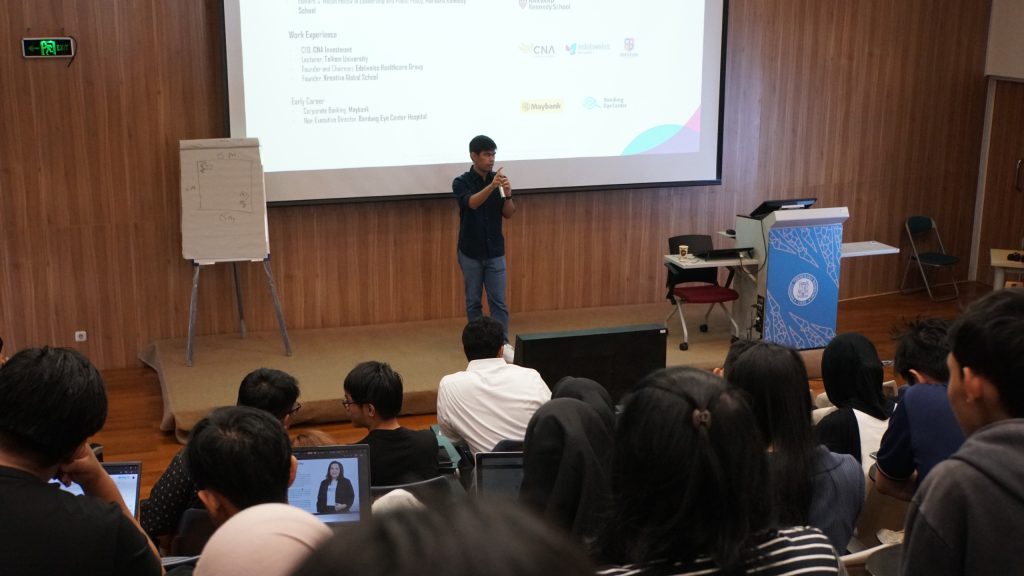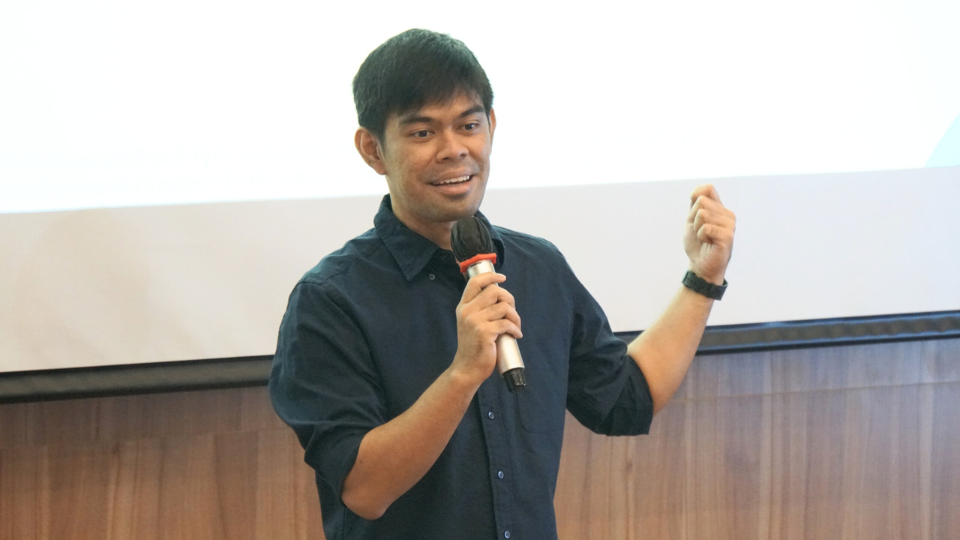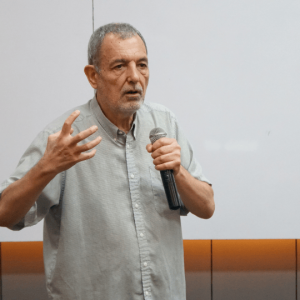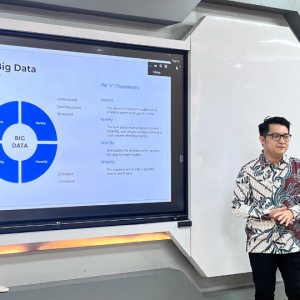In business, success is not determined by who has the most capital, but by who is the most trustworthy. In today’s fast-evolving entrepreneurial landscape, strategic partnerships and strong corporate governance have become essential foundations for building sustainable business ventures.
In a recent session held at the SBM ITB Auditorium, Bandung (30/4), Syauqi Robbani, a seasoned professional and practitioner in business ecosystem development and public leadership, shared insights on the vital role of credibility, resilience, and meaningful connections in entrepreneurship. Addressing students of the SBM ITB, he stressed that strategic collaboration and solid governance are more than theoretical but crucial tools for navigating uncertainty from a young age.
Syauqi outlined two common paths in entrepreneurship: the traditional path, typically taken by first-generation entrepreneurs who rely on bold risk-taking, and the professional path, often chosen by second-generation businesspeople who are more educated and systematic. Regardless of the path, however, he emphasized that resilience is every entrepreneur’s core asset.
“If we don’t have endurance, we can’t compete. Resilience is vital,” Syauqi said.
He underscored that success isn’t solely about rapid growth but the ability to persist and learn from failure.
Speaking on age, Syauqi reflected that the ages of 20 to 30 are a golden phase for self-development. During this period, the focus should go beyond pursuing profits, it should also involve building trust and influence with the board of directors and key figures in organizations.
“People will trust us when they see our capacity,” he said.
Thus, Syauqi encouraged young people to identify the direction of their careers or businesses early on and equip themselves with strategic skills. These include the ability to interpret financial reports for informed decision-making, cultivating curiosity and quick learning, refining interpersonal communication, because “a career is about winning hearts” and building mental resilience to withstand business pressures and competition.
When asked by a student how to start a career with limited privilege, Syauqi responded with a compelling analogy:
“Chase a horse by riding a horse.”
By this, he meant that progress can be accelerated by leveraging relationships, offering value to others, and making one’s presence and potential known.
“If you have limitations, don’t chase from below. Get on board first, build connections, make people notice you, and use that vehicle to grow faster,” he explained.
Syauqi emphasized that in business, trust is the primary currency. To build credibility at a young age, he shared three guiding principles.
First, get things done, complete what has been started with full commitment. Second, don’t betray trust, integrity is non-negotiable; trust is hard to regain once lost. Third, surround yourself with good people, your environment shapes your reputation and opens new opportunities.
He added that effective networking isn’t about knowing many people, it’s about creating value for others.
“Effective networking means providing value to the people we know. It usually works best within two levels of connection,” he said.
Syauqi concluded by encouraging students to seek potential collaborations and leverage collective strengths, as synergy often creates the greatest opportunities.






